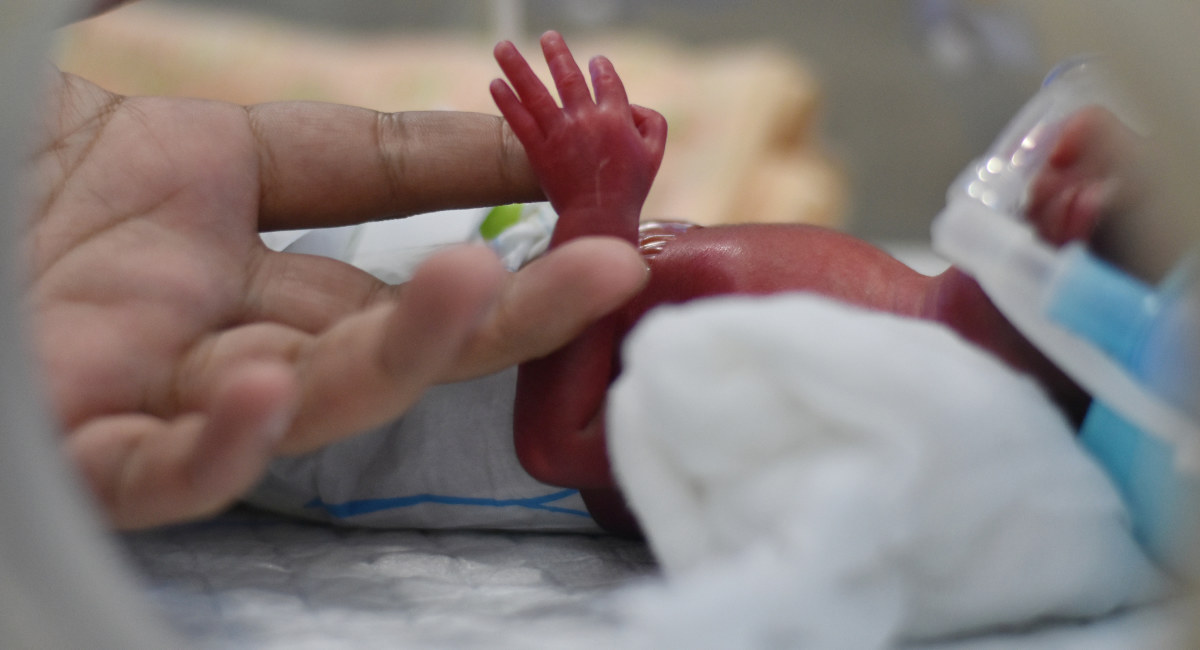(NRL News Today) It would be interesting to be a fly on the wall at the offices of The Daily Mail newspaper in Great Britain. Why?
To be able to figure out how on the one hand this newspaper can print such exquisitely sympathetic first-person narratives about why it was a good idea that a mother aborted her child who had Down syndrome, or a bad idea, on the other hand, for another mother not to have aborted her child who had the exact same condition.
This heightened schizophrenia is most pronounced when, as The Daily Mail has in the past, run a powerful series of stories illustrating how 22-23-week preemies are surviving — babies who could have aborted at 24 weeks under British abortion law.
The “24 week” figure is immensely important for another reason: most hospitals in Great Britain “follow national guidelines” and will do next to nothing if the child is not at least 24 weeks gestational age.
Making the Daily Mail’s schizophrenia even more pronounced is that the 24 week “limit” doesn’t count if the baby has an anomaly — most often Down syndrome! That child can be aborted up until birth under the infamous “Ground E” exception.
Here’s another example, a story headlined, “Now hospitals are saving babies born at just 22 weeks: Medical advances raise new doubts on abortion limit.” Rosie Taylor’s first few paragraphs beautifully summarize the situation:
“Premature babies born at just 22 weeks old are being saved in some hospitals amid huge advances in care.
“Babies are now surviving after being born two weeks earlier than the abortion limit of 24 weeks.
“One top paediatrician says care for very premature babies has improved so significantly that at his hospital those born at 22 and 23 weeks are now more likely to live than die.
“In comments which will reignite fierce debate over the abortion limit, Dr Martin Ward Platt, consultant neonatologist at the Royal Victoria Infirmary, Newcastle, said he believed 23 weeks was ‘the new 24’ in terms of survival chances.
“He told the Mail: ‘The conversations we are having with parents are very different from the ones we were having ten years ago. Twenty three [weeks] is in essence the new 24. Things have shifted so much that most parents tend to be up for saying, “let’s give it a go.’”
Of course, there is nothing magical about 24 (or 23) weeks. The earliest date a preemie can survive has been going down for decades — but survival is obviously also a reflection of the competence (and willingness) of a particular hospital staff.
A few years back, using information obtained via Freedom of Information laws, The Sunday Times obtained figures from 25 hospitals which “showed 120 babies born at 23 weeks over the past five years survived.” Yet, according to Taylor, “about 560 babies are aborted at 23 weeks’ gestation every year.”
Furthermore The Daily Mail did some investigation and found that “Both Croydon Health Services NHS [National Health Service] Trust and Nottingham University Hospitals NHS Trust said they would resuscitate babies born at 22 weeks.”
Taylor ended her post with the story of Lily Burrows.
Lily was born at 23 weeks, weighing 1lb, 3oz. Doctors gave Lily just a 5% chance of survival, her parents said. And, of course, they were told that she would have long-term health problems and could require lifelong medical care.
At one point doctors even talked “about turning off her life support,” her mother, Gillian Lindsay, told The Daily Mail’s Ben Spencer. “But Lily had other ideas.”
Spencer ended with this encouraging news about Lily:
“She is now starting at St Mary’s Primary School in Bonnyrigg, near Edinburgh – and there is barely a clue as to her difficult start to life. Her mother said her daughter was a ‘very clever, very active and very loving little girl’.
“She added: ‘I owe so much to the midwives, doctors and nurses who looked after her in those early days.’”
Editor’s Note: This article was published at NRL News Today and is reprinted here with permission.








